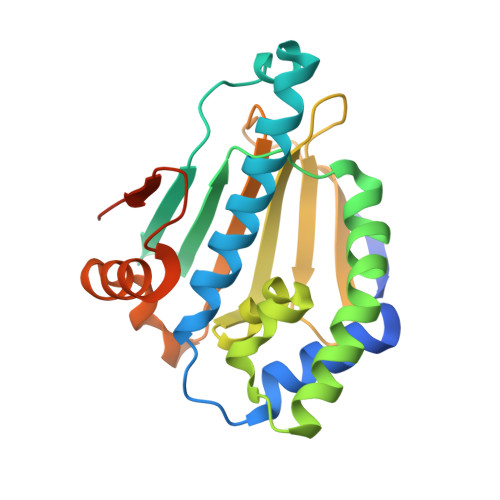Identification of a new series of potent diphenol HSP90 inhibitors by fragment merging and structure-based optimization
Ren, J., Li, J., Wang, Y., Chen, W., Shen, A., Liu, H., Chen, D., Cao, D., Li, Y., Zhang, N., Xu, Y., Geng, M., He, J., Xiong, B., Shen, J.(2014) Bioorg Med Chem Lett 24: 2525-2529
- PubMed: 24751441
- DOI: https://doi.org/10.1016/j.bmcl.2014.03.100
- Primary Citation of Related Structures:
4L8Z, 4L91, 4L94 - PubMed Abstract:
Heat shock protein 90 (HSP90) is a molecular chaperone to fold and maintain the proper conformation of many signaling proteins, especially some oncogenic proteins and mutated unstable proteins. Inhibition of HSP90 was recognized as an effective approach to simultaneously suppress several aberrant signaling pathways, and therefore it was considered as a novel target for cancer therapy. Here, by integrating several techniques including the fragment-based drug discovery method, fragment merging, computer aided inhibitor optimization, and structure-based drug design, we were able to identify a series of HSP90 inhibitors. Among them, inhibitors 13, 32, 36 and 40 can inhibit HSP90 with IC50 about 20-40 nM, which is at least 200-fold more potent than initial fragments in the protein binding assay. These new HSP90 inhibitors not only explore interactions with an under-studied subpocket, also offer new chemotypes for the development of novel HSP90 inhibitors as anticancer drugs.
- Department of Medicinal Chemistry, National Key Laboratory of New Drug, Shanghai Institute of Materia Medica, Chinese Academy of Sciences, 555 Zuchongzhi Road, Shanghai 201203, China.
Organizational Affiliation:

















